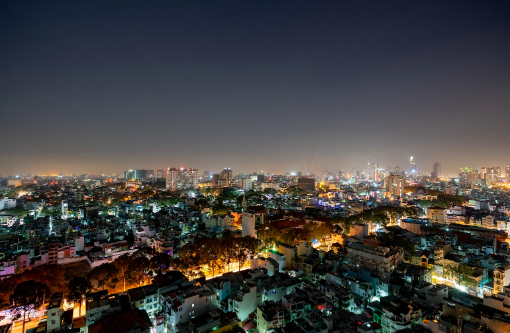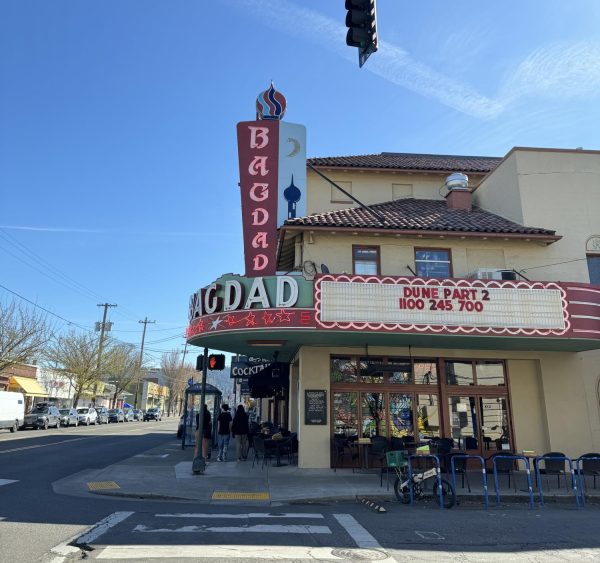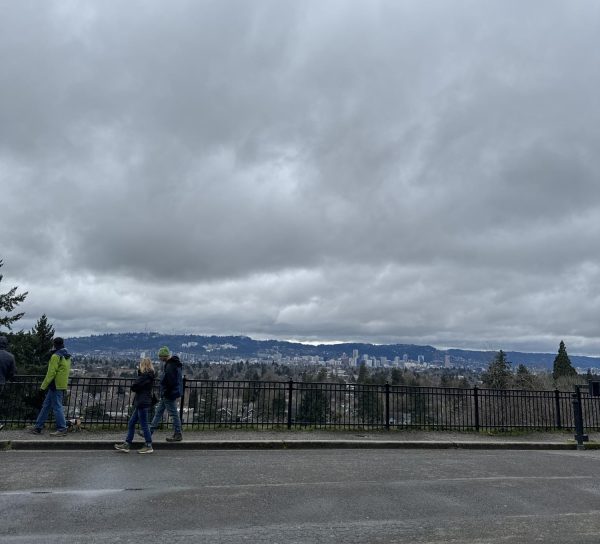Skies Should be Darker – Here’s Why
June 4, 2021
On May 7, 2021, the first International Dark Sky Park in Oregon was certified. It’s purpose? A region free of unwanted light pollution that preserves the quality of starry nights in a protected parcel of land. Dark sky committees are advocating for the addition of more of these parks for people to experience a sky uninhibited by light pollution. However, their efforts aren’t just for the stunning views in rural areas.
“Light pollution often refers to outdoor lighting that is not accomplishing the objective that people need it for,” said Joe Minato, a science teacher and leader of astronomy club at Ida B. Wells High School. One of the largest perpetrators of light pollution is streetlights. They are often built high above the roads or pathways they are illuminating, allowing light to shine in all directions.
Astronomers eager to see the night sky are not the only population to be at a disadvantage due to light pollution. Studies have shown that it disturbs the ecosystem, harming migratory patterns of birds and biochemical rhythms associated with natural light for plants.
This pollution, while harmful, often comes from a need for safety. “I think that it’d be hard for somebody to argue that you shouldn’t light a path that is frequented by people for their safety,” Minato said. Members of the public often argue that parks and paths need to be lit to prevent crime and assault. However, reports on the effectiveness of light reducing crime are often inconclusive or negative, as glaring lights reduce night vision, allowing for easier targeting.
This isn’t to say that omitting outdoor lighting is the answer. “Neither I nor anyone I know is advocating for the elimination of outside lighting, but what we are advocating for is appropriate lighting,” Minato said.
The “appropriate lighting” that he is referring to, is warm lighting that shines directly on the path, not onto the person on it. This can reduce the loss of night vision, the harm of artificial lighting on plants and animals, and electricity usage. It also allows joggers or bikers to feel safe on paths at night, while still maintaining their night vision in the chance of an unsafe situation.
Minato has been personally involved in the transition to appropriate lighting on pathways in Eugene, Oregon, where he serves on a dark sky commission. He said the previously dubious community has largely taken the change well, with joggers and cyclists commenting on their appreciation of the new lighting system and its safety.
These changes in Eugene allowed a more local focus to be brought upon the issue of light pollution in areas such as Ida B. Wells High School. In 2020, now-seniors Maxwell Silvers-Boyce and Ori Friesen conducted a research project on the effectiveness of neighborhood-wide efforts to reduce light pollution in an urban setting, and through their research, they discovered the increase in light pollution that is present at Ida B. Wells compared to an area such as Gabriel Park due to the use of outdoor lighting.
Silvers-Boyce and Friesen quickly attracted the attention of Portland city planners, who discussed the possibility of switching to the appropriate lighting that reduces light pollution during the future remodel of the high school.
“I believe Mr. Minato is going to ensure that Principle Hristic is focused on reducing light pollution,” Freisen said. “The most probable option is to get fully shielded light fixtures around the campus.”
Freisen said that these changes could allow new stargazing opportunities at Ida B. Wells High School. “Mr. Minato has hopes to build a community astronomical observatory at school. This would require significant light pollution change, but I think with enough community support it is possible.”
Large facilities such as schools greatly contribute to light pollution, although this community-supported change can exist on a much smaller, more individual level.
Minato suggested starting simple by turning off an unused porch light or disconnecting any unused outdoor lighting at home. He also suggests that during any replacing of lights, the lights you buy should be well shielded and towards the red end of the spectrum, effectively reducing light pollution and harm to plants and animals.
But the simplest thing to do? “Get out and observe the night sky. Do that in town, in parks, and away from the city,” Minato said, something made easier by the addition of International Dark Sky Parks that make a clear night sky more accessible. “You’re going to be mesmerized by how beautiful the night sky is. And then when you come back to the city, you’ll automatically do things that help reduce light pollution.”









